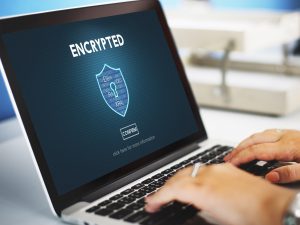
A critical security measure for organizations that have employees working remotely or even in the office is full disk encryption. This prevents the hacking of information resting on a workstation’s disk. Since sensitive information is often stored locally as staff work on documents, spreadsheets, databases, etc., it is critical that it can’t be extracted in clear text.
There are a number of options for full disk encryption, many available from third parties, but an obvious option is BitLocker. Bitlocker usually comes along with Windows, the leading OS on corporate workstations worldwide.
You must have the Professional or Enterprise edition of Windows 8, 8.1 or 10 installed to find BitLocker natively available. It’s simple to activate just by a right click on the drive to be encrypted. Windows also strongly recommends a Trusted Platform Module (TPM), which is basically a chip on a computer’s motherboard that ties the BitLocker encryption to that machine, preventing a disk swap and a decryption through brute force.
For users, access to their encrypted drive simply requires a password configured during the initial encryption. Since passwords get lost and employees come and go, there is a backup key that is also produced as a fail-safe that can reside with your IT staff.
Full disk encryption was panned in its early days for the impact on performance of a given machine, but today’s processing speeds and gained efficiencies have alleviated any slowdowns particularly for day to day work of most company users.
To learn more about full disk encryption and how it can benefit your security profile, please contact Superior Technology at 845-735-3555 or online at www.superiortechnology.com
Comments are closed.
